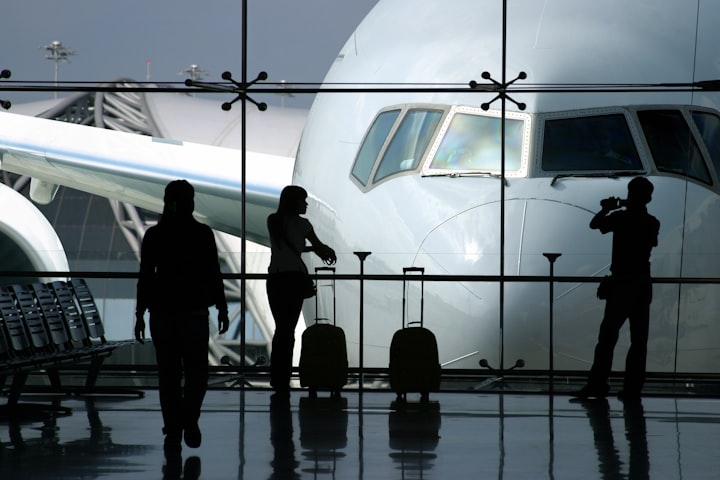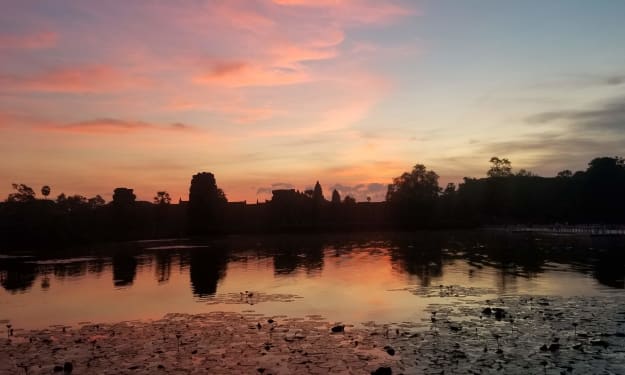What Steps You Should Take For Safety Before Boarding The Plane.
What I do, after 4 years of full-time travel.

So I would like to share a few tips that I do before I travel that affects me when I land.
First, I would like to say; that I am not an organized person who plans very far in advance. Yet when it comes to my safety and arriving alone in a foreign country, I take it very seriously.
My safety tips!
When I first started traveling, I thought I was a little over the top; then, these steps have helped me every time in my travels. So this is what I do to prevent any adverse outcomes upon arrival at my hotel.
So from your home country to your hostel/hotel.
I make copies of my passport; I will put a copy in my carry-on luggage and one in my checked bag. I will also place cash in USD in my checked bag, usually enough to get a hotel/hostel and the taxi to my destination.
I will put a credit card in my checked bag as well. I hide it, not with my passport photo, usually tucked away in a pair of socks, pants pocket, or shoes. Also, canceling a credit card is pretty easy if your checked luggage is stolen.
I will never put my debit card in my checked bag.
Make sure your bank knows you are traveling! Now you can do it all online, at least with my bank.
I will also have a copy of my passport in my hand luggage. As well as, I will put cash in my wallet and the backpack I carry with me. I will have my debit card on me at all times.
Also screenshots of every important document needed, with back up emails to one of my siblings!
Upon arriving, I will check to see what paperwork is needed for immigration. For example, upon arriving in Colombia, you need a Check-Mig form to fill out 24 hours before your flight; it’s online.
Now I check to see if I need a PCR test upon entry and what their vaccination requirements are, which are ever-changing, so pay attention. Also, do you need a vax passport to enter restaurants, museums, etc.
I make sure that I have a paper copy and a photo of it on my phone. I always print everything if my phone dies (but I always have a portable charger on me!) or I have no service.
I also will take a screenshot in the language I am traveling. I will attempt to say it, or show the immigration officer, do not assume they speak your language; they usually do not. I can say, “I am here on vacation for two months, or however long.”
Some countries will ask for proof of onward travel. So I always buy a one-way flight out of the country. Buy a flight at One Way Fly; yes, it is a confirmed ticket; it will reserve the flight, but the cost is $20 and is only valid for 14 days.
No, it is not an actual flight. Yes, it works; I use it every time. With that said, know how long you can stay in a country. You do not want to overstay your visa. Also, I buy a fake flight because I take a bus out of the country a lot of the time, and this is easier done at the bus station.
I only fly when it is necessary; I hate to fly.
One time I was leaving Japan and going to Thailand; I did not have my flight out, as I would take the bus to Cambodia. It was also the only time I have been asked to show proof of onward travel.
I had to sign an affidavit that I would not overstay my time in Thailand, or I would be arrested. I signed it knowing I would not overstay; I took a flight to Cambodia, but I bought a local flight, and it was cheaper than booking online. I think the buses were on strike; it was a weird situation, so the flight was an easier option, yet I upheld my end of the deal and did not overstay.
So if you are going to “break” the rules with a fake flight, only do it because you have alternative ways of leaving the country, do not overstay your visa. I only use the phony flight because my exit strategy is already planned, or for example, I had a fake flight out for Colombia because I was applying for a long-term visa. Yet you can not explain that to immigration.
Ok, off my soapbox!
Always have the address of your accommodation; you need one address; I will give the address of the first hostel I will be at.
I always have this information written on a sheet of paper and a screenshot of my reservation.
Knowing what I needed was helpful in Botswana; I visited a friend, and the immigration officer was very strict. I had to give my friend’s full name and address, and it was stressful, but luckily I was prepared.
I also research how to get from the airport to my hostel.
I will know the route, I will google screenshot turn by turn, so I can tell if I am headed in the right way, a bit of overkill, but better safe than sorry.
Always know the price of the taxi, bus, or uber. It will prevent you from getting ripped off when you first set foot in the new country. Taxi drivers love to take advantage of those of us who have just had a long flight.
It happened in Cusco. I just arrived, and many taxi drivers were driving up the price; they know we gringas will pay. I learned how much, so I said no, I know how much it costs, and I just walked out of the airport a bit and found a taxi driver who told me yes, that is the price I will take you for that.
So if you are a budget traveler like me, this is important to know. There are honest drivers also. He laughed and said we increase it because no one knows or cares. I said I would do the same, but I researched, and he said you are smart.
I also know if there is a cheaper option from Medellin there is a bus to the touristic area. It costs around 10 USD and a taxi costs around 40 USD. Except it stops at a specific time, and many of the flights into Colombia are later, so I took a taxi last time, but I prefer the bus.
Yet I knew the price from the airport to the city center.
Cash is king.
Always get a little cash out in the airport from the ATM when you land.
Taking cash from the airport is safer, especially if you land late. Having local currency is vital, especially because many taxis say they take a card, but they will tell you no because they want cash or the machine is “broken.”
Please do not change your USD for the local currency at the exchange booths, it is a rip-off, and it is always good to have some USD on you; you never know. It could come in handy.
I always take out about 100 dollars in local money in the local currency, it’s enough for an emergency, and also, if you get robbed, it’s not that much.
Before you get into a cab:
Ask how much is it to where you are going.
Make sure they turn on the meter.
If you want to pay by card, ask if they take a card.
This way, they know before you get in you are using your card, and you know how much it will cost. Have this as a screenshot if you do not speak the local language or use google translate.
Also, be aware most international airports have free wifi.
Some countries will offer a sim at the airport, but I never buy them. I have google fi, so I turn on my phone and have service; some people say TMobile works. Yet I prefer google fi, and I always check for free wifi everywhere; it has saved me so many times.
*affiliate link to google fi
Always know the country’s culture you are going to.
It will help you from wearing a tank top in a Muslim country as I did once.
It was the one time I was rushing to leave a country, and I planned poorly regarding the country’s culture. I was in Malaysia, which is a country I love; however, don’t wear a tank top or use a sarong to cover your shoulders as I did, once I realized my error.
Research what part of the city is safest for tourists, where to go, and where not to go.
For example, do not go to El Centro in Medellin past 4 pm! It is all easily accessible with google and youtube now.
A little research will go a long way! Be vigilant, use common sense, and know the new country’s rules!
I still get pretty stressed until I am in my hostel, my guard is up, and my head is on a swivel; now, after four years, I am a little more chill, yet, I still prepare and research.
I think this is about it; I am sure I left out something! It is all second nature to me now.
What is your number 1 travel tip for safety?
About the Creator
sara burdick
I quit the rat race after working as a nurse for 16 years. I now write online and live abroad, currently Nomading, as I search for my forever home. Personal Stories, Travel and History






Comments
There are no comments for this story
Be the first to respond and start the conversation.